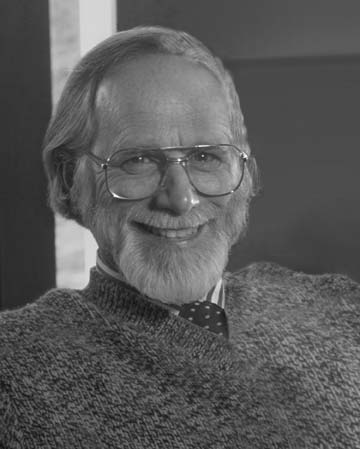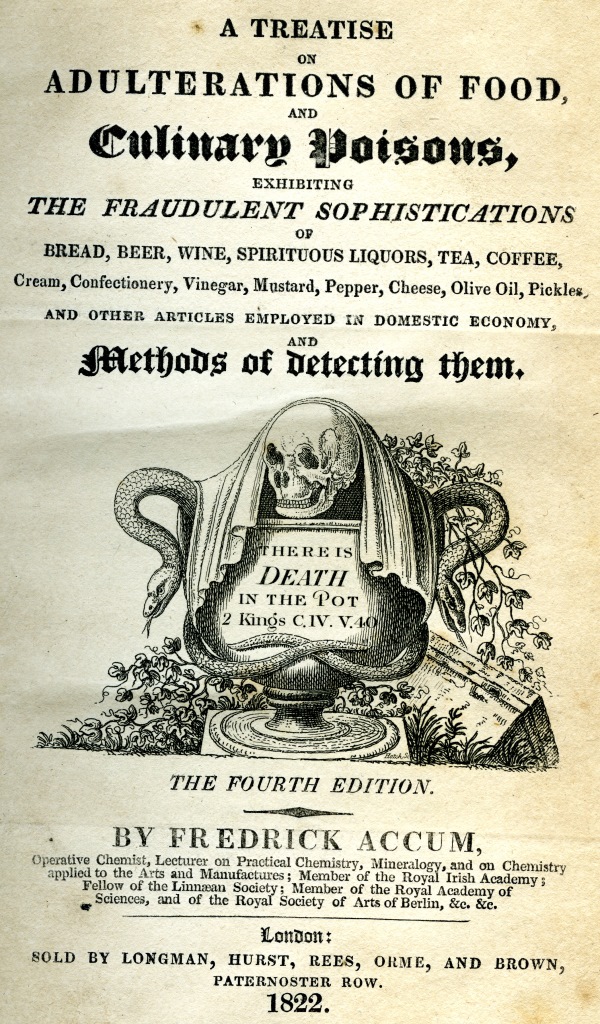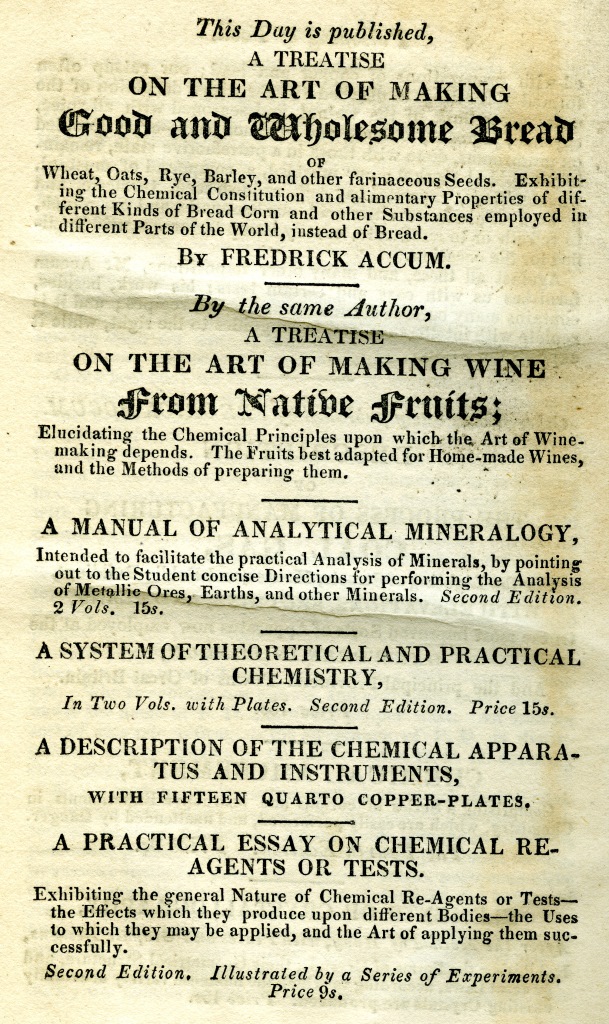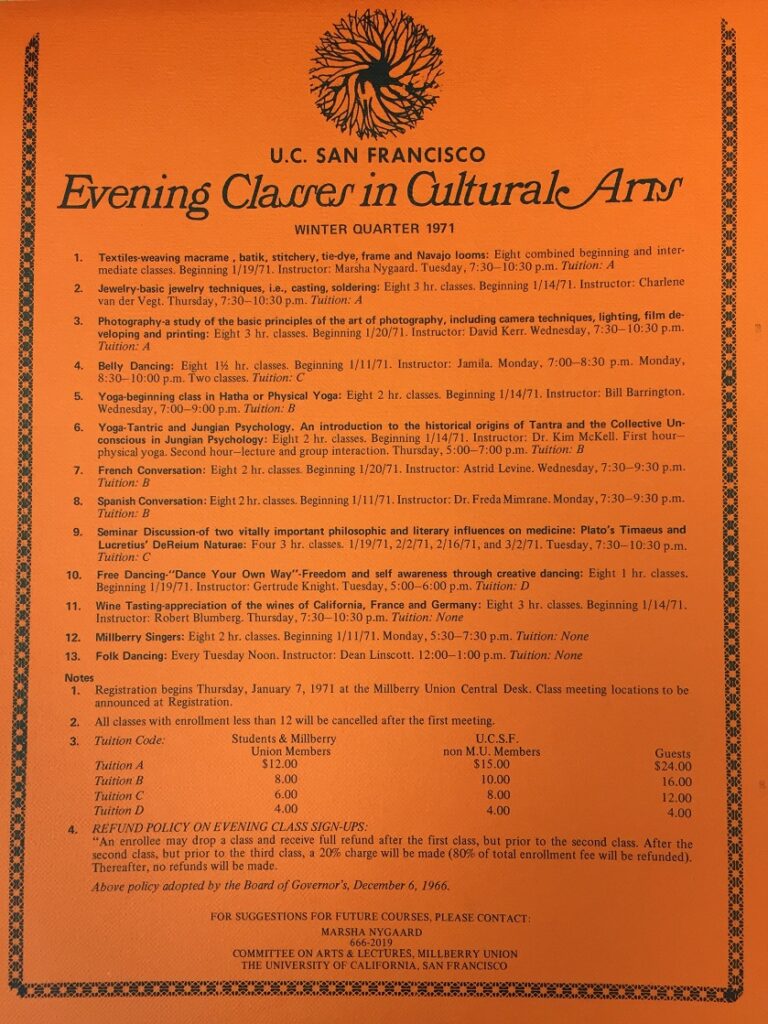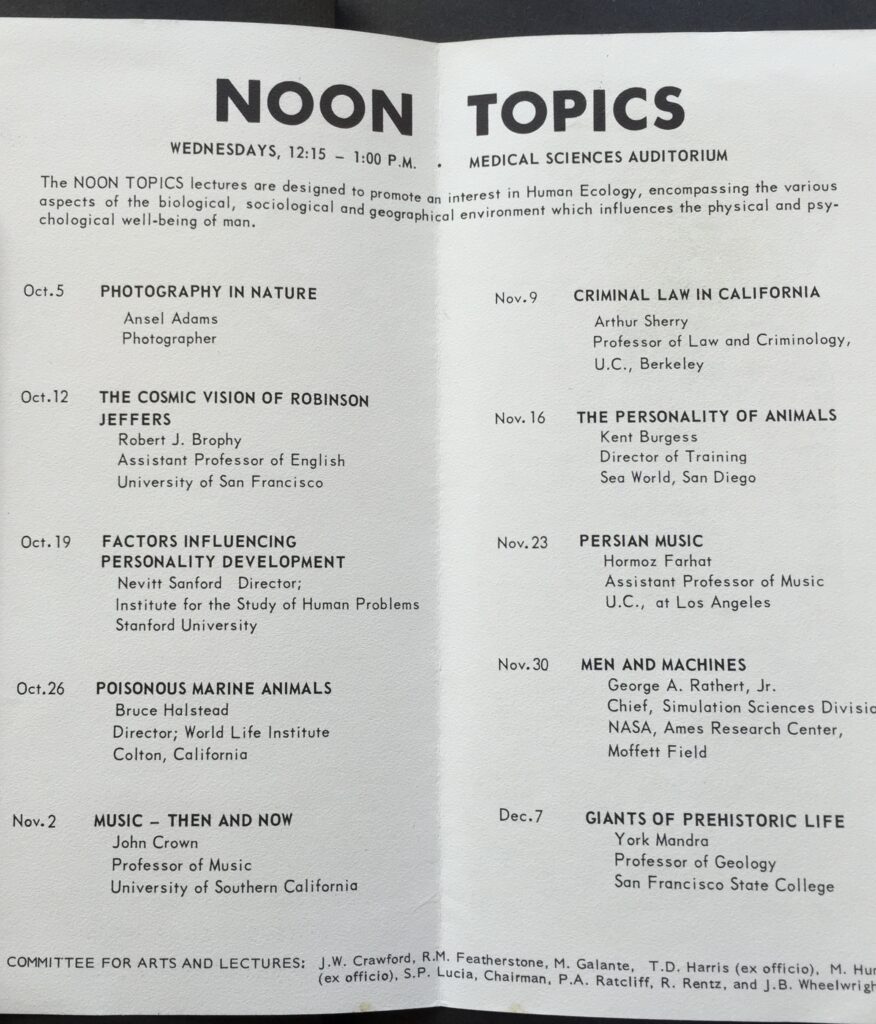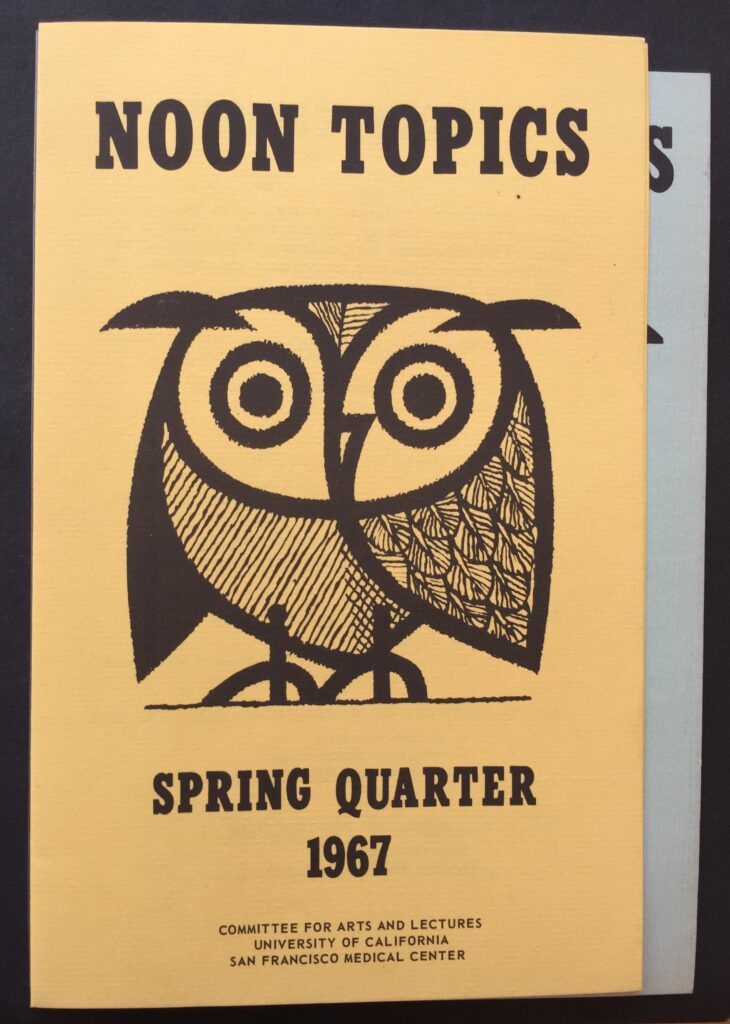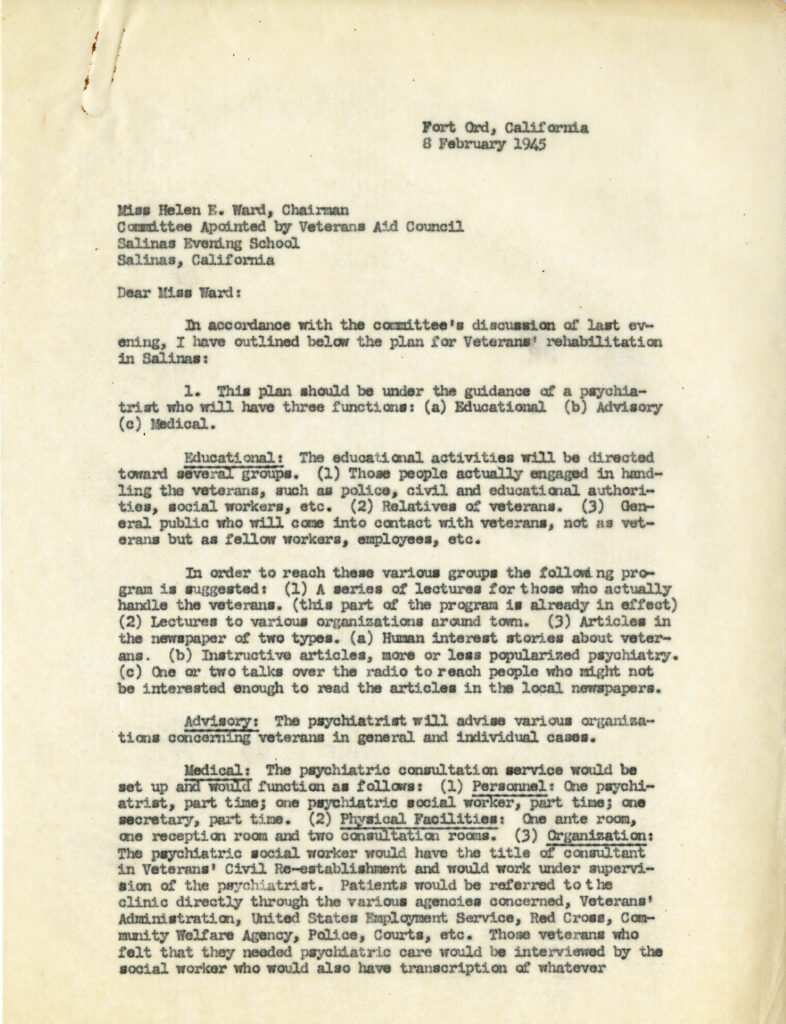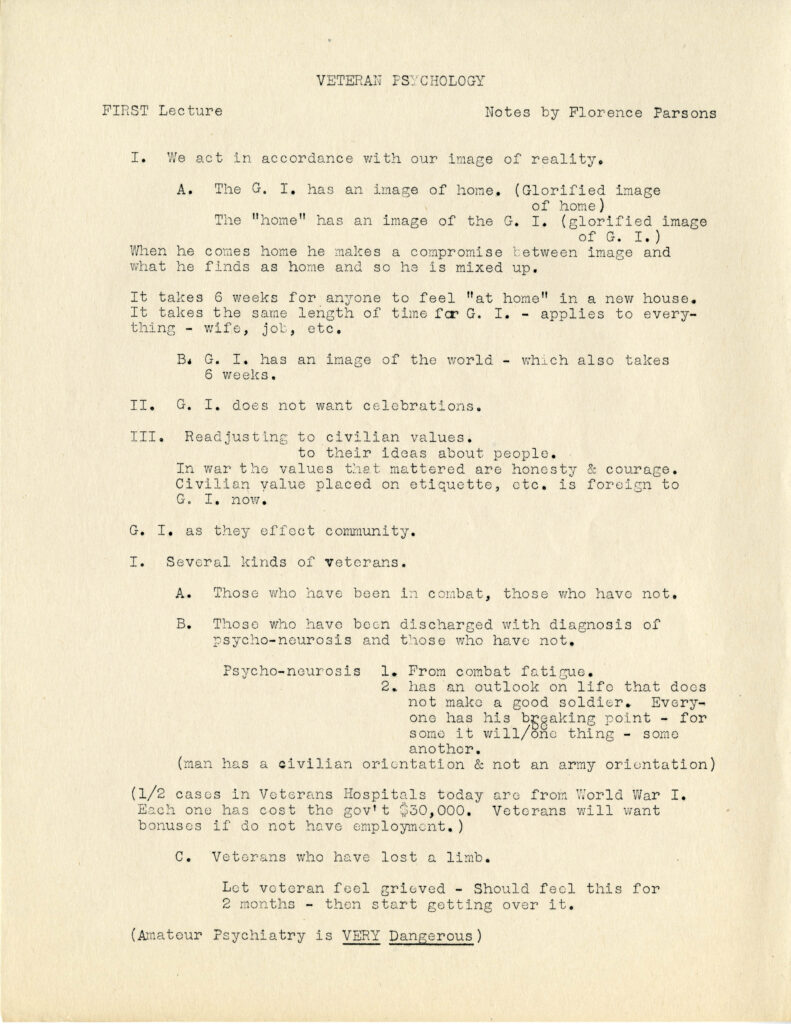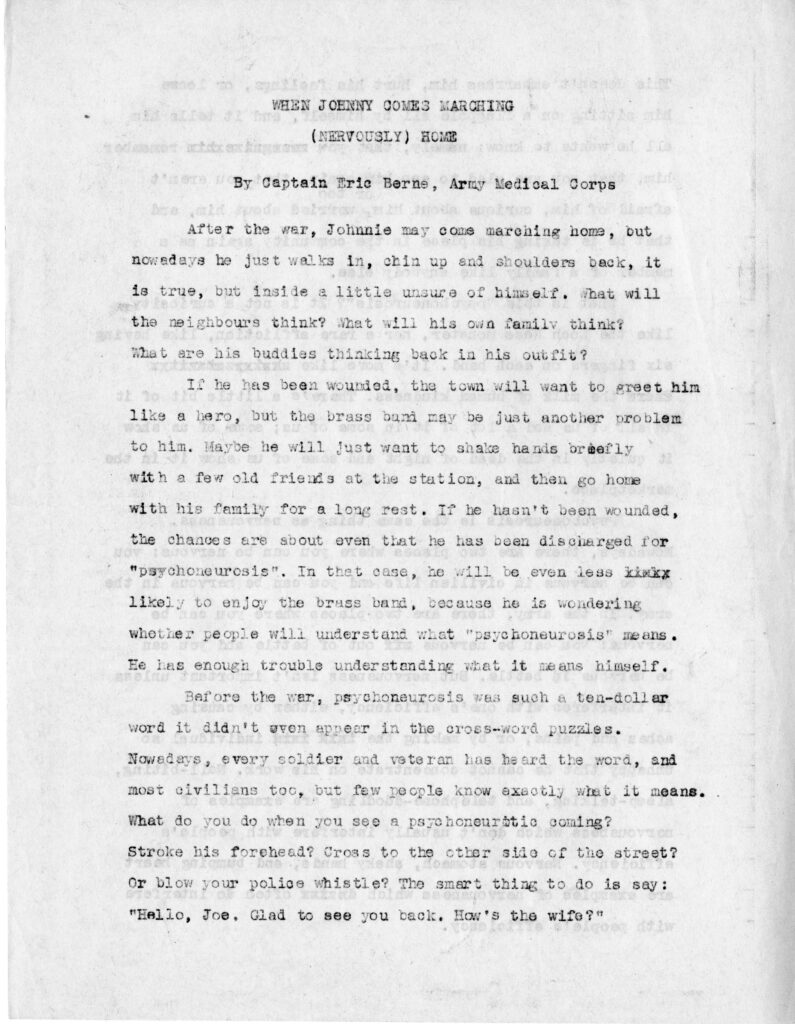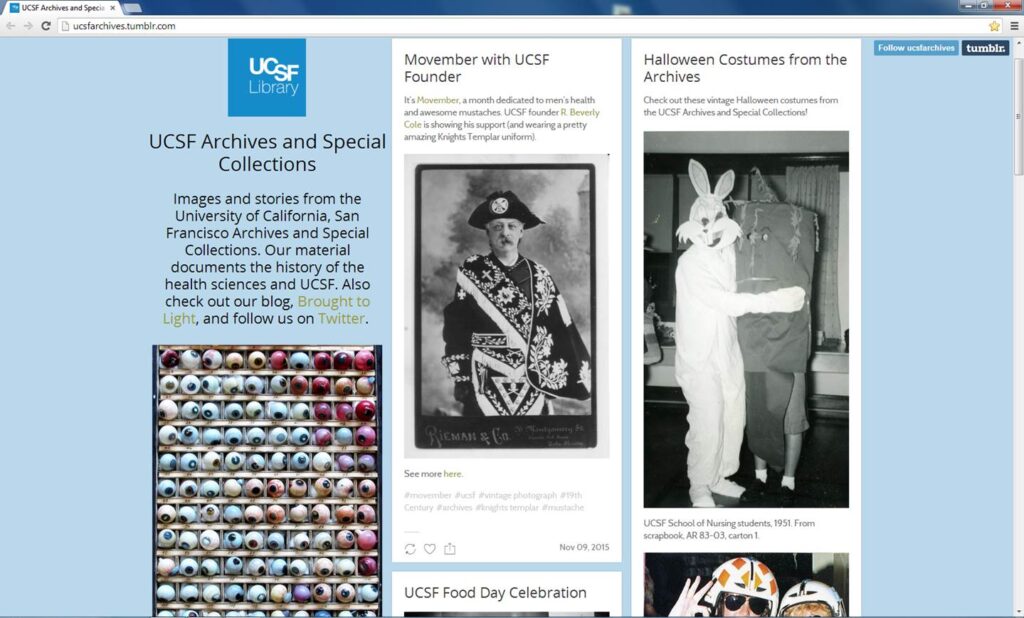We are processing the papers of J. Michael Bishop, Nobel Prize-winning scientist and UCSF Chancellor Emeritus. The project will produce a detailed finding aid for the collection and a digital collection of selected material.
J. Michael Bishop, MD, joined the UCSF faculty in 1968. He was appointed director of the GW Hooper Research Foundation in 1981 and named UCSF Chancellor in 1998, a post he held until 2009. He continues to serve as Hooper’s director and as professor in the Department of Microbiology and Immunology.
In 1989, Bishop and his research colleague, Harold Varmus, were awarded the Nobel Prize in Physiology or Medicine for their work in cancer research. Bishop and Varmus discovered the cellular origin of retroviral oncogenes. Their work helped clarify the processes that convert normal cellular genes into cancer genes and impacted our understanding of the genesis of human cancer.
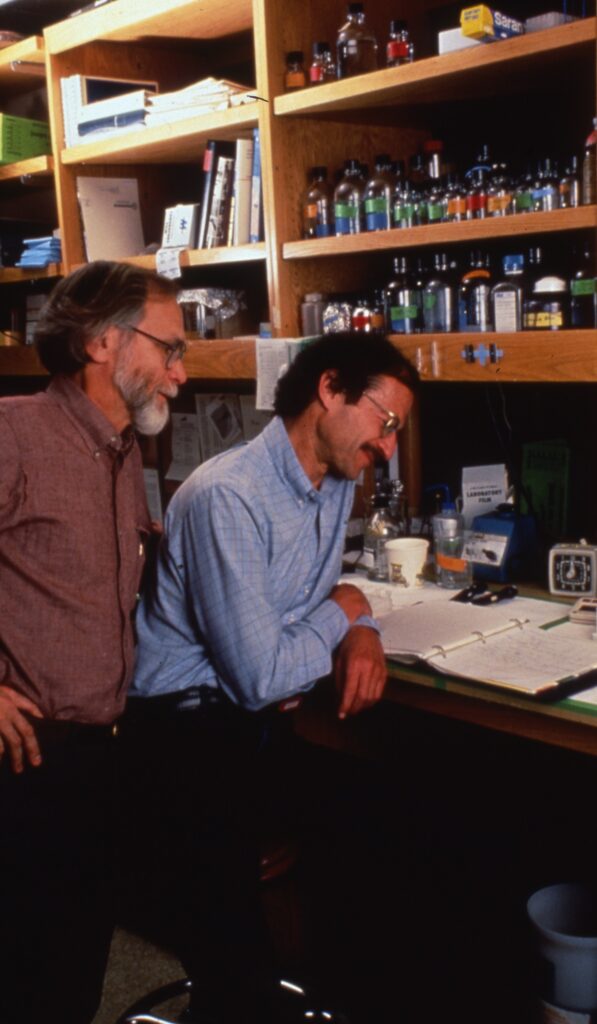
Bishop and Varmus in laboratory. Photograph Collection, Bishop.
Bishop’s papers (MSS 2007-21) contain his laboratory research notebooks and professional papers, including article drafts, correspondence with other scientists, and teaching and lecture material. Also included are drafts and figures from Bishop’s autobiographical book, How to Win the Nobel Prize: An Unexpected Life in Science.
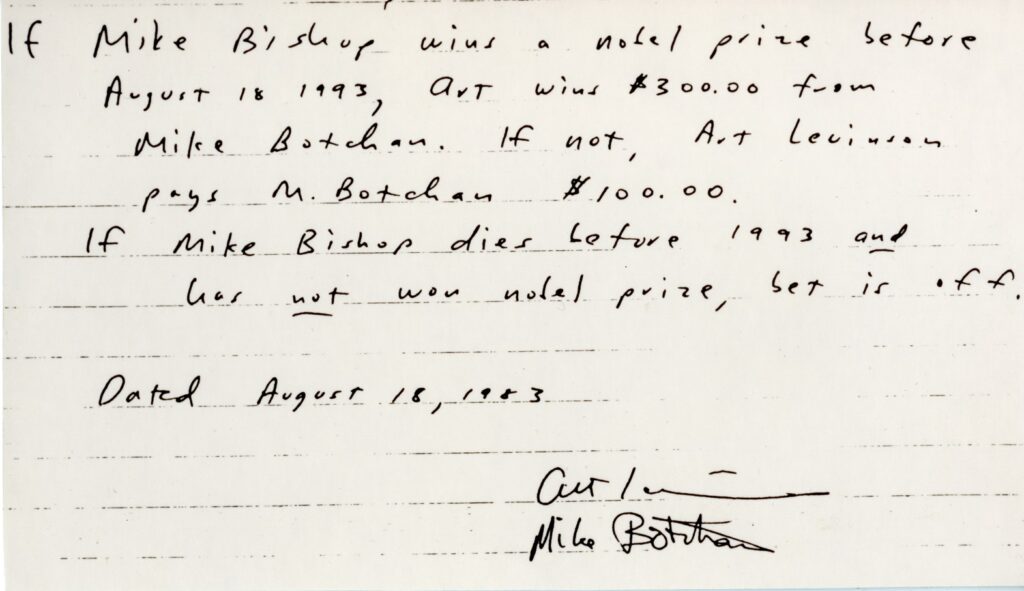
1983 wager between UC Berkeley faculty member Mike Botchan and Arthur Levinson, Bishop’s staff scientist at the time. Figure included in Bishop’s book, How to Win the Nobel Prize. Exhibit files, Bishop papers, MSS 2007-21.
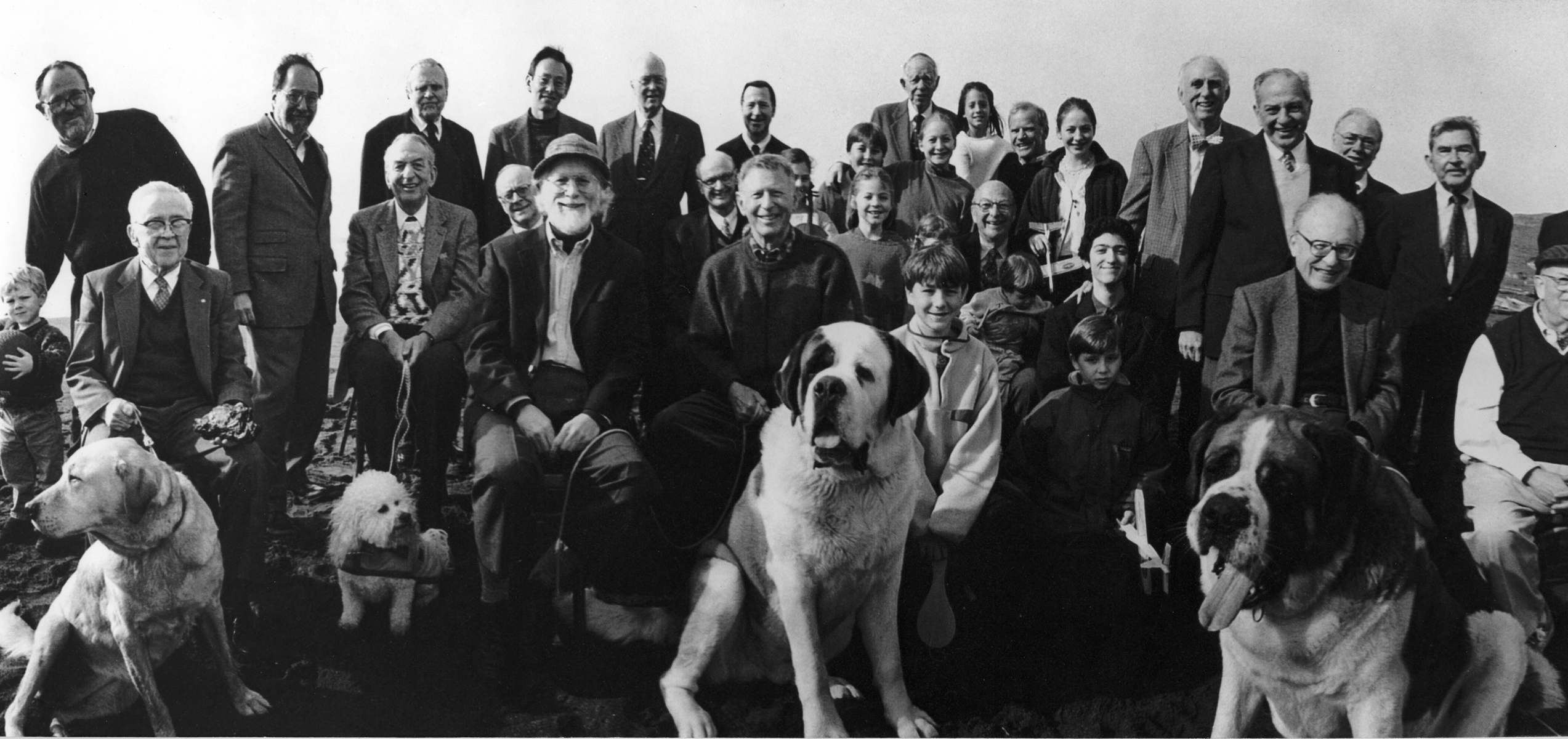
Group photograph of California Nobel Prize winners with family members and dogs, 1998. Bishop pictured at center. Exhibit files, Bishop papers, MSS 2007-21.
The collection even includes replicas of Varmus and Bishop’s Nobel Prize medals!
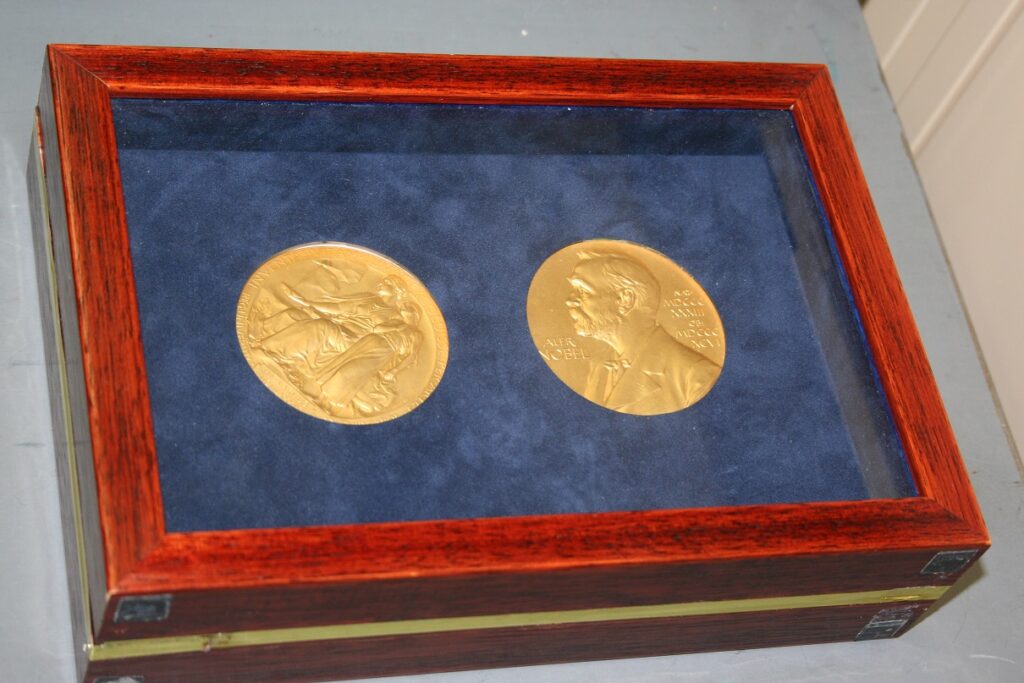
Replicas of Varmus and Bishop Nobel Prize medals. MSS 2007-21.
The UCSF Archives and Special Collections also houses the papers of Harold E. Varmus (MSS 93-51, MSS 84-25, and MSS 88-47). Please contact us if you would like to view any of these collections.
